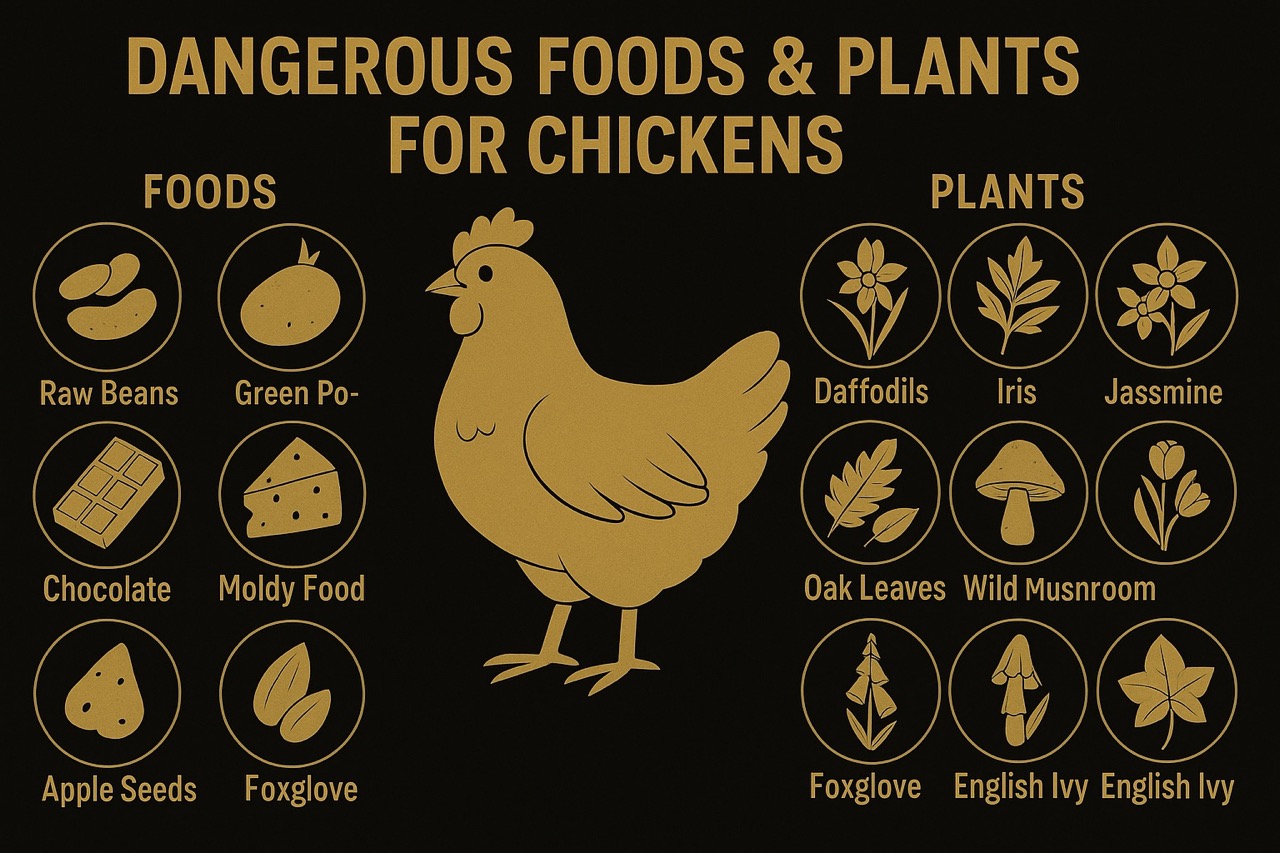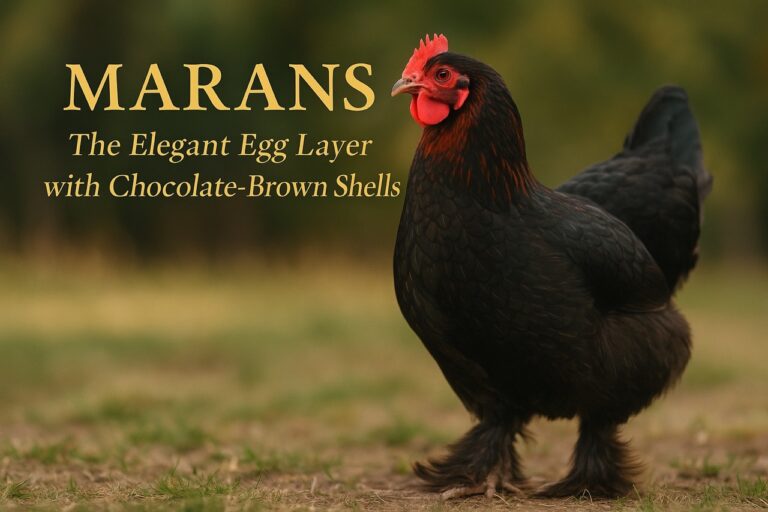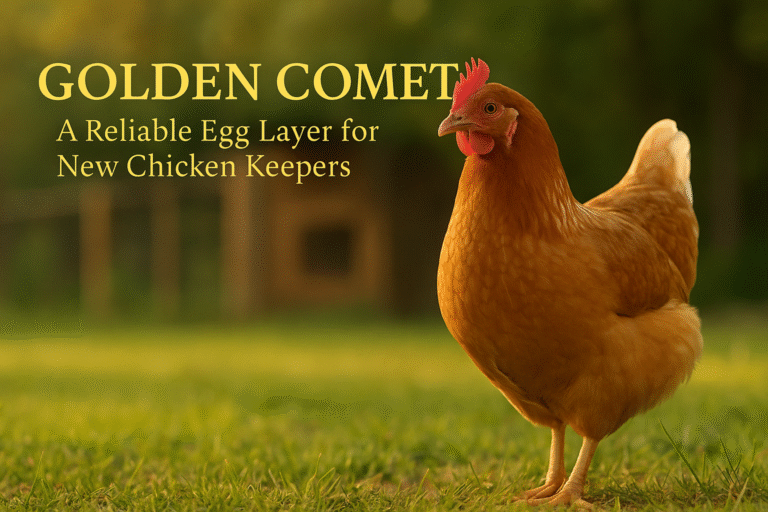Feeding chickens may seem simple, but many common foods and plants can be harmful or even deadly to your flock. If you’re raising backyard poultry, understanding what not to feed chickens is essential to protecting their health. This guide provides a complete breakdown of toxic foods, drinks, and plants that can cause digestive problems, illness, or death—along with safe feeding tips to keep your hens thriving.
⚠️ Toxic Foods to Avoid
1. Avocados
Avocados contain a compound called persin, which is highly toxic to chickens. Even small amounts can cause respiratory distress, fluid accumulation around the heart, and sudden death. Avoid all parts of the avocado—including skins, pits, and leaves.
2. Chocolate & Candy
Chocolate contains theobromine and caffeine, both of which overstimulate the nervous system and can lead to tremors, seizures, and heart failure. Candy’s high sugar content disrupts digestion and increases the risk of obesity and metabolic disorders.
3. Raw Potatoes & Green Potato Peels
Green potatoes and peels contain solanine, a glycoalkaloid toxin that interferes with nerve signals and disrupts gut function. Ingestion can result in vomiting, paralysis, and death.
4. Tomato Leaves & Green Tomatoes
As part of the nightshade family, these parts contain solanine as well. While ripe tomatoes are usually safe, green ones and the leaves can cause diarrhea, weakness, and nervous system issues.
5. Moldy or Spoiled Food
Moldy leftovers and spoiled feed produce mycotoxins, which are toxic fungal compounds. These can trigger respiratory problems, suppress the immune system, and cause fatal liver or kidney failure.
6. Raw Kidney Beans
Raw kidney beans contain phytohaemagglutinin, a lectin that is deadly even in tiny amounts. Cooking neutralizes this toxin, but raw or undercooked beans can quickly kill a bird.
7. Processed Junk Food
Highly processed foods—like chips, crackers, and lunch meats—contain artificial additives, preservatives, and excess sodium. These stress the kidneys, increase dehydration risk, and provide no nutritional value.
8. Uncrushed Eggshells
Feeding uncrushed eggshells can encourage egg-eating behavior, a difficult habit to break. This can result in reduced egg production and messy coop conditions. Always crush and mix shells with other feed.
9. High-Salt Foods
Excessive sodium intake leads to salt poisoning, which causes neurological symptoms, kidney strain, and death. Avoid feeding any salted snacks or leftovers.
10. Citrus Fruits
Citrus fruits are acidic and can interfere with calcium absorption. This results in thinner eggshells, poor shell formation, and lower egg production in laying hens.
11. Raw Meat
Raw meat may contain harmful bacteria such as E. coli or salmonella. These pathogens can spread rapidly among flock members and lead to infections or internal damage.
12. Dairy Products
Chickens lack the enzyme lactase, making them lactose intolerant. Consuming milk, cheese, or yogurt can lead to digestive distress, diarrhea, and nutrient malabsorption.
13. Unripe Eggplant
Similar to other nightshades, unripe eggplant contains solanine, which disrupts digestion and nerve function. Ensure any eggplant is fully ripened and cooked before considering it as a treat.
14. Onions
Onions contain thiosulfate, which damages red blood cells and causes hemolytic anemia. Symptoms may include lethargy, pale combs, and eventual death.
15. Apple Seeds & Cherry Pits
These fruit parts contain cyanogenic glycosides, which release cyanide during digestion. Cyanide impairs oxygen transport in the blood, leading to respiratory failure.
16. Bread (in excess)
Bread lacks essential nutrients and expands in the crop, which may lead to impaction. Overfeeding also promotes obesity and reduces feed intake of more nutritious foods.
17. Fried Foods
High-fat, oily foods are hard for chickens to digest and can lead to fatty liver disease, weight gain, and chronic digestive issues.
18. Ice Cream & Frozen Desserts
These treats are high in sugar and lactose, both of which are harmful to chickens. They can cause bloating, diarrhea, and blood sugar imbalances.
🍹 Dangerous Drinks
1. Coffee & Tea (Caffeinated)
Caffeinated drinks contain methylxanthines, including caffeine and theobromine, which overstimulate a chicken’s central nervous system. This can lead to increased heart rate, seizures, internal bleeding, and even death. Chickens have a much lower tolerance for caffeine than humans, making even small amounts potentially lethal.
2. Soda & Juice
Sodas and fruit juices are loaded with sugars and acids, which chickens are not equipped to process. These beverages can cause gut fermentation, leading to bloating, gas buildup, and microbiome imbalances. High sugar intake also promotes fatty liver disease and obesity, shortening your chicken’s lifespan.
3. Alcohol
Alcohol is toxic to all birds and especially dangerous to chickens due to their small size and high metabolism. Ethanol affects the nervous system, causing coordination loss, seizures, and organ failure. Even minor amounts can be fatal, so chickens should never be given access to beer, wine, or any alcoholic substance.
🌿 Toxic Plants to Keep Away
1. Tulips, Daffodils, and Irises
These ornamental flowers contain lycorine and other alkaloids that irritate the gastrointestinal tract. Ingestion can lead to vomiting, diarrhea, abdominal pain, and loss of appetite. In large amounts, symptoms can escalate to dehydration or death.
2. Bracken Ferns
Bracken ferns contain ptaquiloside, a known carcinogen that causes anemia, internal bleeding, and digestive tract damage when consumed over time. Chickens who forage in areas with bracken ferns may suffer long-term health consequences.
3. Yellow Jasmine
Yellow jasmine is extremely toxic due to the presence of gelsemine alkaloids, which depress the central nervous system. Affected chickens may display muscle tremors, paralysis, slowed heartbeat, and sudden death. Even small doses are dangerous.
4. Oak Leaves and Acorns
Both leaves and acorns from oak trees contain tannic acid, which can cause gastrointestinal distress, kidney damage, and impaired digestion in chickens. Chickens that consume large quantities may exhibit vomiting, weakness, or sudden weight loss.
5. Wild Mushrooms
Many wild mushrooms contain amatoxins or muscarine, which are deadly to chickens. The challenge is that toxic and edible mushrooms can look nearly identical. Ingestion can lead to vomiting, liver failure, seizures, and death. It’s safest to keep chickens away from all wild mushrooms unless identified by an expert.
6. Foxglove & Rhododendron
Both of these plants contain cardiac glycosides, compounds that affect heart rhythm. Chickens that ingest foxglove or rhododendron may suffer from irregular heartbeat, weakness, digestive upset, and sudden cardiac arrest.
7. English Ivy
English ivy contains saponins and polyacetylene compounds, which disrupt both digestive and neurological functions. Symptoms include salivation, vomiting, diarrhea, muscle tremors, and loss of coordination. Prolonged exposure or ingestion can be fatal.
📈 Quick-Reference Charts
Quick Reference Table: Toxic Foods for Chickens
| Food | Why It’s Dangerous |
|---|---|
| Raw Beans | Contain lectins (like phytohaemagglutinin) that are fatal even in small amounts. |
| Green Potatoes | Contain solanine, a neurotoxin that disrupts digestion and nerve function. |
| Chocolate | Contains theobromine and caffeine, toxic to the nervous and cardiovascular systems. |
| Moldy or Spoiled Food | Contains mycotoxins that cause liver failure, immune suppression, or death. |
| Apple Seeds & Cherry Pits | Contain cyanogenic glycosides that release cyanide when digested. |
| Raw Kidney Beans | Contain phytohemagglutinin; even a few raw beans can be lethal. |
| Fried & Fatty Foods | Hard to digest, contribute to obesity, and may lead to fatty liver disease. |
| Bread (in excess) | Fills the crop with empty calories, causes blockages and contributes to obesity. |
| Citrus Fruits | Can inhibit calcium absorption and reduce egg production. |
| Dairy Products | Chickens are lactose intolerant—leads to diarrhea and bloating. |
🍹 Quick Reference Table: Drinks to Avoid
| Drink Type | Why It’s Dangerous |
| Coffee & Tea | Contain caffeine and theobromine, which overstimulate the nervous system and can cause seizures or death. |
| Soda & Fruit Juices | High in sugars and acids that can ferment in the crop, leading to gut imbalance, obesity, and bloating. |
| Alcohol | Interferes with the nervous system, causing disorientation, organ failure, or death, even in small amounts. |
🌿 Quick Reference Table: Toxic Plants for Chickens
| Plant | Why It’s Dangerous |
| Tulips, Daffodils, Irises | Contain alkaloids that irritate the digestive system and may cause vomiting or diarrhea. |
| Bracken Ferns | Contain ptaquiloside, linked to anemia and internal bleeding. |
| Yellow Jasmine | Contains gelsemine alkaloids that can cause paralysis and death. |
| Oak Leaves and Acorns | High in tannins, which damage the digestive tract and kidneys. |
| Wild Mushrooms | Often contain amatoxins or muscarine, both fatal toxins. |
| Foxglove & Rhododendron | Contain cardiac glycosides that disrupt heart rhythm and cause cardiac arrest. |
| English Ivy | Contains saponins that lead to neurological and digestive distress. |
✅ Safe Feeding Tips
- Stick to a balanced commercial feed for 90% of diet
- Limit kitchen scraps and treats to no more than 10%
- Always crush eggshells before feeding back
- Avoid spoiled food and clean feeders regularly
- Keep fresh water available at all times
- Monitor egg production and behavior for signs of dietary issues
📅 Conclusion: Raise a Healthier Flock
Being informed about what not to feed chickens is just as important as knowing what they can eat. Many seemingly harmless kitchen scraps or garden plants can be toxic. By sticking to a balanced diet, avoiding known hazards, and keeping treats safe and minimal, you’ll help your chickens thrive and avoid unnecessary illness or loss.
When in doubt, leave it out.
📚 More Reading on Paranoid Prophet
🌾 Natural Chicken Foraging Tips:
Curious about what chickens can eat safely from your backyard? Our Wheatgrass Hay & Winter Chickens article explains how to supplement nutrition naturally while avoiding common mistakes.
🐓 How Much Space Do Chickens Really Need?
Avoid overcrowding and stress in your coop. Read Chicken Space Requirements to plan for flock growth and optimal health.
🥚 Backyard Eggs vs Store-Bought:
See why your home-raised eggs beat supermarket cartons every time in Backyard Eggs vs Store-Bought, with nutrition breakdowns and cost comparisons.
🧠 Chicken Mental Health Matters:
Yes, it’s a thing. Explore the surprising emotional benefits of flock keeping in Backyard Chickens & Mental Health, from anxiety relief to daily joy.
Sources:
- Foods You Shouldn’t Feed Your Chickens
This article outlines common foods that can be toxic to chickens, highlighting both familiar and unexpected hazards. - A Complete Guide on Foods That Are Toxic to Chickens and Ducks
A comprehensive guide detailing the toxic foods that chickens and ducks should avoid, providing useful insights for poultry caretakers. - 7 Things You Shouldn’t Feed Your Chickens
This blog post lists the top seven foods that should be avoided when feeding chickens, with explanations on why they can be harmful.
FAQ: What Not to Feed Chickens
Common Questions About Toxic Foods for Chickens
1. Can chickens eat avocado?
No. Avocado contains persin, a toxin that can cause heart and respiratory damage, which can be fatal for chickens. Avoid feeding any part of the avocado, including the fruit, skin, and pit.
2. Is it safe to give chickens chocolate or candy?
No. Chocolate contains theobromine, and candy is high in sugar. Both can cause seizures, heart issues, and digestive problems in chickens, and can be lethal if consumed in large quantities.
3. Can chickens eat raw potatoes or potato peels?
No. Raw potatoes, especially the green parts and peels, contain solanine, a harmful toxin that can cause nausea, vomiting, and even death in chickens.
About Plant Safety
4. Are tomato leaves or green tomatoes safe for chickens?
No. Tomato plants are part of the nightshade family and contain solanine, which can lead to digestive distress and other severe health problems. Avoid giving chickens tomato leaves or unripe tomatoes.
5. Can chickens eat citrus fruits like oranges or lemons?
Citrus fruits should be avoided. While chickens may nibble on them, the high acidity can interfere with calcium absorption, leading to weak eggshells and poor egg production.
6. Are mushrooms safe for chickens?
No. Wild mushrooms, in particular, can be toxic to chickens. Some species cause severe poisoning and even death. Always avoid giving them mushrooms.
Feeding Practices
7. Can chickens eat dairy products like milk or cheese?
No. Chickens are lactose intolerant and cannot digest dairy, which can lead to bloating, diarrhea, and other digestive issues. Avoid feeding them any dairy products.
8. How often can I give chickens treats?
Treats should be limited. They should make up no more than 10% of your chickens’ diet to prevent nutritional imbalances and obesity. Stick to healthy, safe treats to avoid health issues.
9. Can chickens drink coffee or tea?
No. Caffeine is toxic to chickens. It can lead to heart problems, restlessness, and even death. Keep coffee, tea, and other caffeinated beverages away from them.
10. What happens if chickens eat too much bread?
Bread, in excess, can be harmful. While not toxic, it has little nutritional value and can lead to crop blockages or obesity if fed too frequently.




